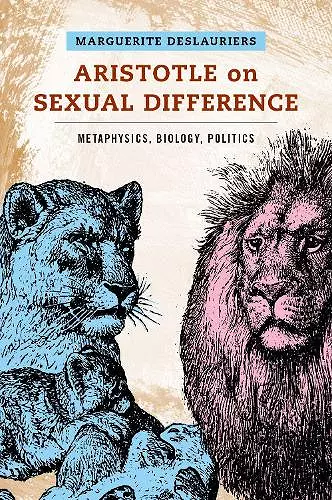Aristotle on Sexual Difference
Metaphysics, Biology, Politics
Format:Hardback
Publisher:Oxford University Press Inc
Published:13th Jul '22
Should be back in stock very soon

Aristotle's remarks about the differences between the sexes have become infamous for their implications for the social status of women. In his observations on female biology, Aristotle claims that "the female nature is, as it were, a deformity." In describing women's role in the public sphere, he claims that women are naturally subordinate because, while they possess a deliberative faculty, that capacity is "without authority." While both claims express the "inferiority" of female bodies/women relative to male bodies/men, it is not self-evident that the defects Aristotle identifies in female biology have cognitive or moral manifestations that would justify the rule of men over women in political life. Marguerite Deslauriers here aims to construct a coherent picture of Aristotle's views on sexual and gender-based difference from these remarks and to show the extent to which his views on female biology and women's role in politics are causally connected. Without exculpating Aristotle from charges of misogyny, Deslauriers contextualizes his explanations of the role and origin of female animals in his biology and the role of women in his political philosophy; she shows how Aristotle developed these views and the importance they hold for his wider philosophical commitments. She then explores how Aristotle might have seen the link between the physiology of sex and the bearing it has on political life. She ultimately argues that in Aristotle's conception of sexual difference in biology and politics, there is a tension between his view of the inferiority of female bodies and women and his commitment to the idea that females and women are valuable both for generation and for the political life characteristic of human beings. In this tension she finds a difference between Aristotle and his predecessors: while previous accounts associate sexual difference with affliction, Aristotle sees sexual difference as a benefit, both to a species and a political community. This volume will be of interest to philosophers and students interested in ancient philosophy, feminist philosophy, as well as those studying moral and political philosophy.
Aristotle on Sexual Difference is a book that rewards careful study and engages in interesting ways with the ever-growing literature at the intersection of Aristotle's biology and his ethics and politics. * Rosemary Twomey, Journal of the History of Philosophy *
This book is a model of fastidious scholarship; it is well argued and makes significant, original contributions to the existing literature; and it is a comprehensive and definitive treatment of Aristotle's views on the metaphysics, biology,and politics of sexual difference. It will unquestionably be a valuable resource for any students or scholars interested in these topics. * Josh Wilburn, GMONOM *
ISBN: 9780197606186
Dimensions: 163mm x 239mm x 30mm
Weight: 680g
376 pages